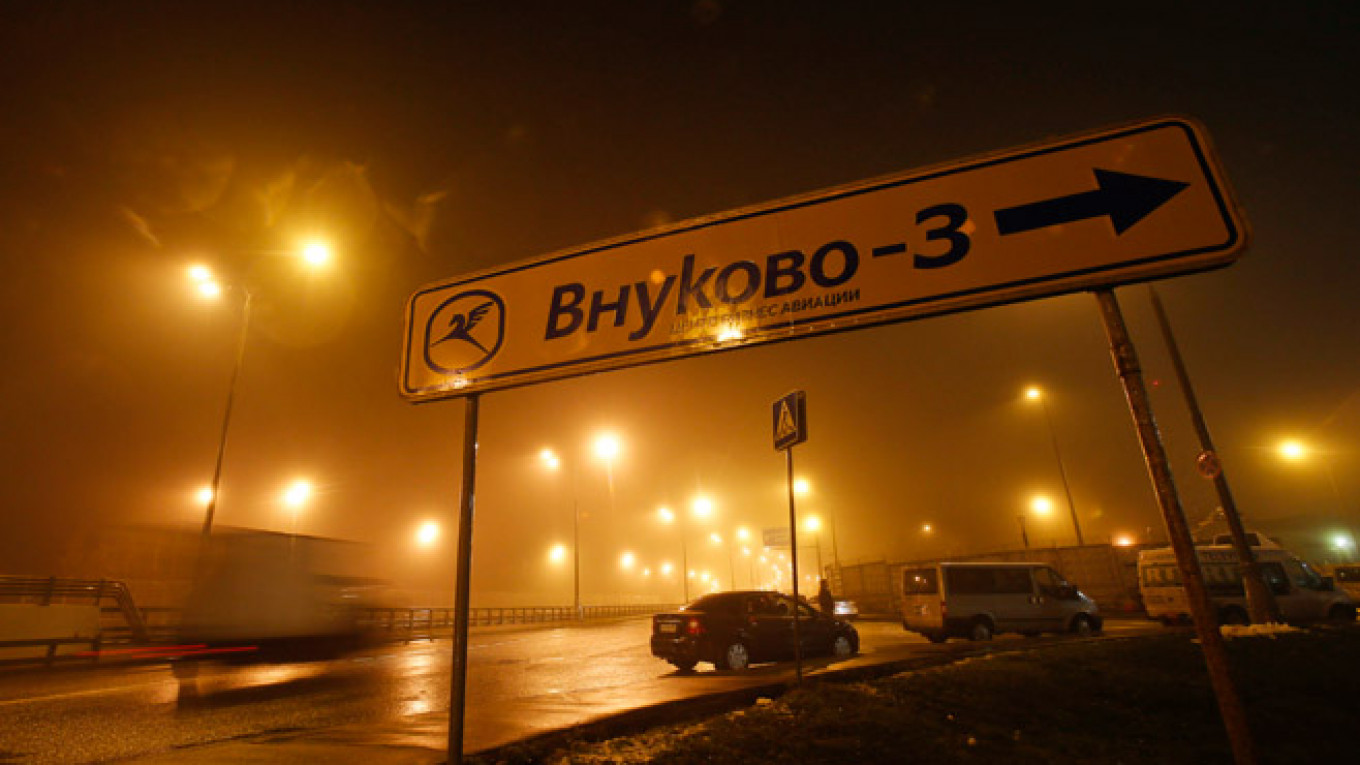Christophe de Margerie, CEO of French oil giant Total, died on Monday night outside Moscow along with three others when his business jet hit a snowplow on a landing strip at Vnukovo Airport. Early reports implicate the snowplow driver — possibly drunk, though his lawyer denied it — or a ground control mistake. Any allegations in this case need thorough investigation, but so far it seems fair to say that human error killed one of the most powerful men in the world.
Such tragedies have happened before — for example, the 2010 incident when Polish President Lech Kaczynski died in a plane crash near the Russian city of Smolensk along with 95 more people on board. That crash was mostly blamed on mistakes made by the crew, though the Polish side insisted that errors by Russian ground control also contributed to the tragedy.
But while the 2010 catastrophe was largely seen as extraordinary, the Vnukovo crash looks like the latest incident in a clear trend highlighting Russia's public service and infrastructure problems.
Russia has seen more than its fair share of high-profile incidents caused by public safety services simply not doing their job well enough. In another Moscow airport, Sheremetyevo, a man died in August from apparent cardiac arrest after an emergency rescue team took more than an hour to arrive.
In July, 24 people died in a metro train crash in Moscow, now tentatively blamed on a technical malfunction. In 2011, 122 died in the Volga River in the sinking of the cruise ship Bulgaria, which, a court later ruled, should not have been certified to operate. In 2009, 156 perished in a blaze in Perm's Lame Horse (Khromaya Loshad) nightclub amid numerous fire-safety violations.
Beyond these incidents, there are thousands of less publicized accidents that boil down to the same thing: Public safety is compromised because of negligence on the part of the authorities tasked with upholding it. Russia has a legion of state agencies charged with enforcing meticulous and contradictory public safety regulations. But such watchdogs are best known for harassing businesses and organizations, shaking them down for bribes.
The root of the problem lies in the fact that while Russia still has more honest officials than is often believed, too many of their less-than-honest colleagues see state service as a sinecure at best, or a means for personal gain — usually through graft — and not as a duty to the people.
At the very top, such greed results in reported embezzlement of federal funds, documented by whistleblowers such as Alexei Navalny, who claimed that at least half of the $51 billion budget for the Sochi Olympics was lost to overcharging construction companies with links to the Kremlin.
At a lower level, it means that many people tasked with fire safety, flight safety, construction safety or utilities maintenance simply do not care enough, closing their eyes to regulation infractions or ignoring deteriorating infrastructure in the hope that "it'll simply work out" — which works out only until it doesn't, and someone gets hurt.
In this context, the Vnukovo crash plays a role similar to the downed Malaysian airliner in eastern Ukraine: attracting international attention to what was previously seen as an essentially local problem. A half-hearted approach to basic public safety is Russia's domestic problem, but it just got harder to ignore now that it affected a prominent foreigner so tragically.
Indignant noises are now expected — and are already forthcoming — from the Kremlin, and officials will likely be fired. But until the attitude to state service, including public safety, is changed, Russian nightclubs, streets and landing strips will remain far more dangerous than they are supposed to be.
And let's not forget that one of Vnukovo's terminals — though not the one where the crash took place — serves President Vladimir Putin's own flights.
A Message from The Moscow Times:
Dear readers,
We are facing unprecedented challenges. Russia's Prosecutor General's Office has designated The Moscow Times as an "undesirable" organization, criminalizing our work and putting our staff at risk of prosecution. This follows our earlier unjust labeling as a "foreign agent."
These actions are direct attempts to silence independent journalism in Russia. The authorities claim our work "discredits the decisions of the Russian leadership." We see things differently: we strive to provide accurate, unbiased reporting on Russia.
We, the journalists of The Moscow Times, refuse to be silenced. But to continue our work, we need your help.
Your support, no matter how small, makes a world of difference. If you can, please support us monthly starting from just $2. It's quick to set up, and every contribution makes a significant impact.
By supporting The Moscow Times, you're defending open, independent journalism in the face of repression. Thank you for standing with us.
Remind me later.






